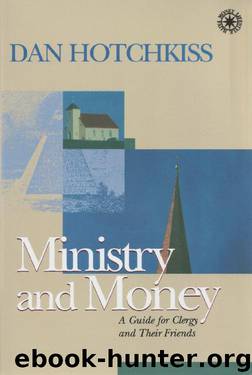Ministry and Money by Dan Hotchkiss

Author:Dan Hotchkiss [Author, Unknown]
Language: eng
Format: epub
Published: 0101-01-01T00:00:00+00:00
Spending
To a visitor from elsewhere, one of the most striking features of life in the United States is the quantity of goods Americans own and use. This is not a new trend. Thorstein Veblen, one of the most influential critics of American consumption, wrote about the new rich of the late 19th century. These wealthy industrialists’ material needs were satisfied, but they spent and consumed ever more opulently to achieve the admiration and envy of others. This was done through what Veblen called “conspicuous consumption,” which served the wealthy as a “means of reputability.” Such consumption, he wrote, “must be an expenditure of superfluities. In order to be reputable, it must be wasteful. No merit would accrue from the consumption of the bare necessities of life.”36
Veblen’s observation rings true today, not only for successive generations of nouveaux riches, but for Americans of other economic classes also. The “Veblen effect,” whereby “consumers are willing to pay a higher price for functionally equivalent goods” because they are thought to be used by people of higher status, is well known to marketers.37 This tendency is the rationale behind celebrity endorsements. It also powers the success, especially since the 1980s, of “premium” ice cream, “quality” pens, “designer” clothes, and other goods that command a higher price than functionally identical products on the basis of imputed prestige. Increasingly, high price itself has become the mark of a preferred product:
In virtually every product category, there was an item or brand that proudly, even defiantly, set out to be more expensive than all others. This brand, almost by definition, would then become the standard of “taste” and “quality” against which less esteemed items could be measured. No one seemed to notice that a basic tenet of market capitalism was being turned upside down: Price was dictating value, rather than vice versa.38
In a striking study of the Veblen effect, economist Srully Blotnick asked 181 returning vacationers how satisfying their trips had been. After recording their answers, he told half of them that “someone rich and/or famous” had stayed in the same town or hotel. Asked the same question two weeks later, members of this group raised their estimate of the trip’s satisfaction value by 43 percent, while the control group’s memories had dimmed by 6 percent. The Veblen effect distorts our perceptions even when we buy investments; many people buy tax shelters or tax-free municipal bonds even when they are not in a high enough tax bracket to make up for the low returns on such securities.39 Clearly the desire to appear affluent or to identify with those who are remains a powerful engine behind our country’s famous overspending.
On the other hand, we Americans have long criticized ourselves for excessive materialism. Veblen’s Theory of the Leisure Class is only one of many popular jeremiads against overspending. In recent years, this self-criticism has increased, even as our taste in sneakers, cars, and restaurants has grown more refined. The irony has not escaped observers. Sociologist Robert Wuthnow notes that “[t]he
Download
This site does not store any files on its server. We only index and link to content provided by other sites. Please contact the content providers to delete copyright contents if any and email us, we'll remove relevant links or contents immediately.
The 5 Love Languages: The Secret to Love That Lasts by Gary Chapman(9792)
The Space Between by Michelle L. Teichman(6932)
Assassin’s Fate by Robin Hobb(6200)
Wiseguy by Nicholas Pileggi(5771)
Everything Happens for a Reason by Kate Bowler(4734)
Gerald's Game by Stephen King(4642)
Pillow Thoughts by Courtney Peppernell(4273)
A Simplified Life by Emily Ley(4158)
The Power of Positive Thinking by Norman Vincent Peale(4062)
Harry Potter and the Prisoner of Azkaban (Book 3) by J. K. Rowling(3355)
Resisting Happiness by Matthew Kelly(3337)
Girl, Wash Your Face by Rachel Hollis(3282)
Being Aware of Being Aware by Rupert Spira(3272)
The Secret Power of Speaking God's Word by Joyce Meyer(3184)
The Code Book by Simon Singh(3182)
More Language of Letting Go: 366 New Daily Meditations by Melody Beattie(3024)
Real Sex by Lauren F. Winner(3016)
Name Book, The: Over 10,000 Names--Their Meanings, Origins, and Spiritual Significance by Astoria Dorothy(2983)
The Holy Spirit by Billy Graham(2944)
